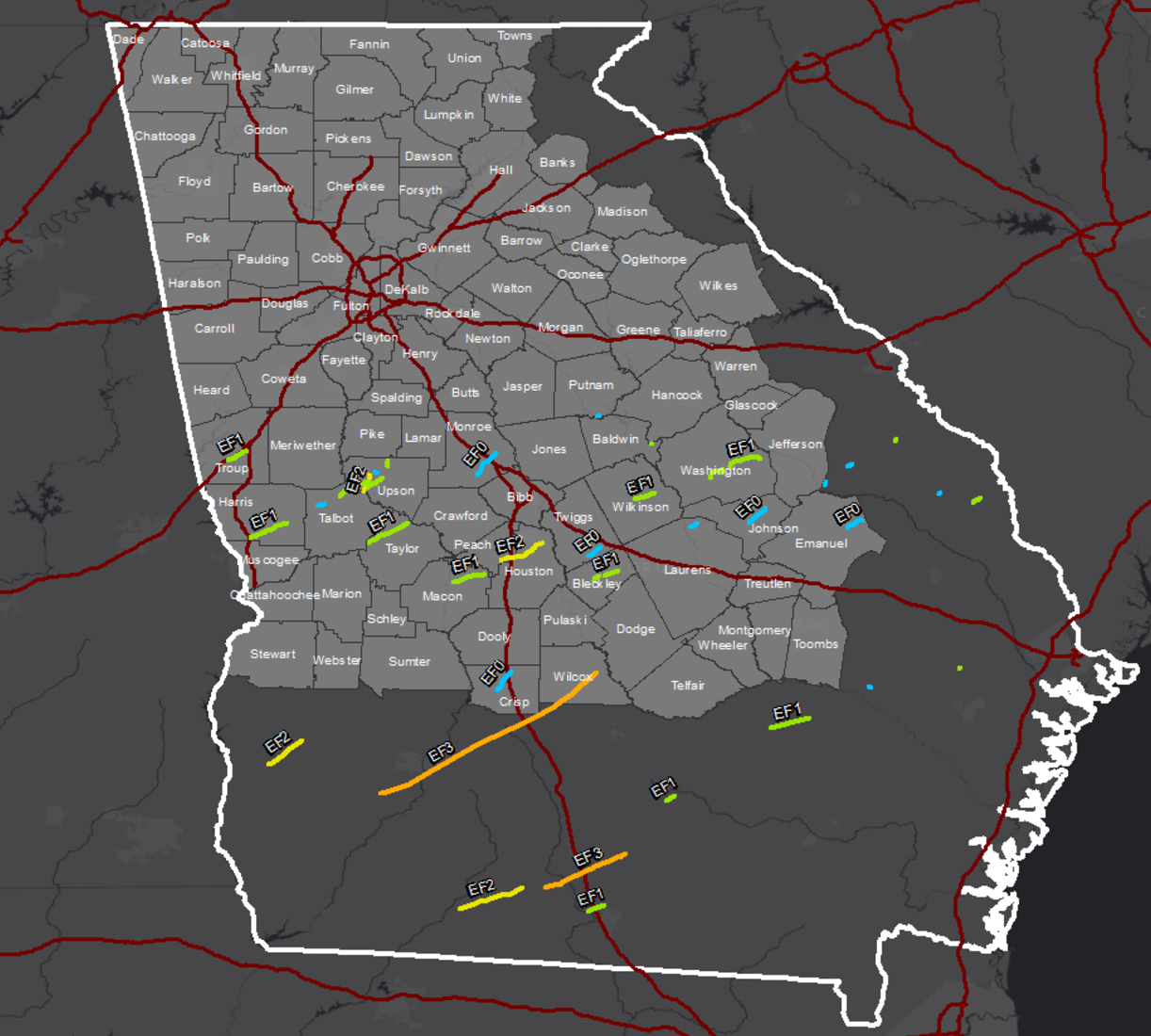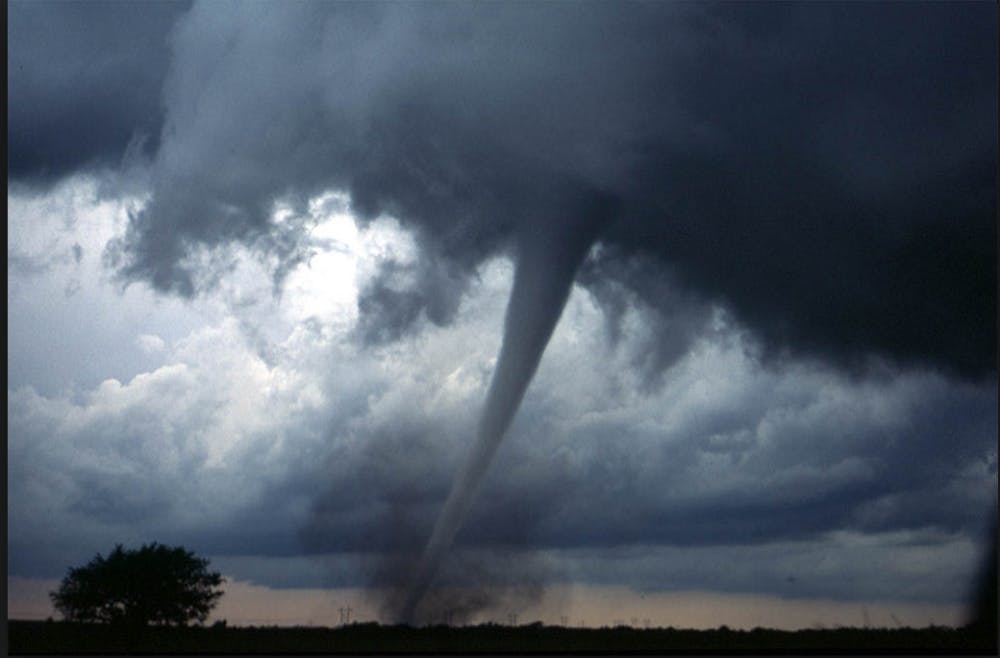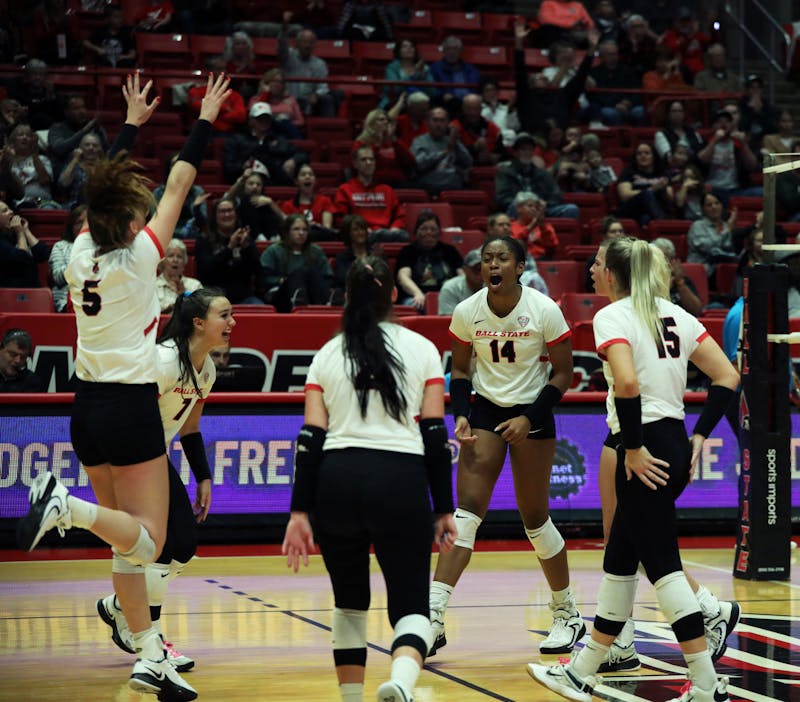While severe thunderstorms and tornadoes can happen any time of year, spring is a popular season for them. April, May and June are the most common months when tornadoes and severe storms form. The clashing air masses from Canada and the Gulf create perfect conditions for a tornado.
“I kind of have to know a little bit about tornadoes for my career,” said Seth Blalock, a junior architecture student at Ball State. “I will need to know how to model and shape buildings in certain areas so they can withstand the winds of tornadoes. I don’t want my clients to have their building fall down.”
Massive weather phenomenons occur on a regular basis. Severe weather occurrences depend on air masses, pressure systems, temperature, air patterns and more. All the factors need to be right to form a thunderstorm, hurricane and tornado.
According to National Geographic, most tornadoes form from thunderstorms, which need warm, moist air from the Gulf of Mexico and cool, dry air from Canada. Tornadoes can form in different shapes, strength and location. Regardless, they all form in the same ways. After the storm has formed, the warm air lifts and pushes down the cool air. Wind-shear and updraft carries the air up through the supercell. As the supercell churns the warm air, 30 of the time a tornado forms.
Tornadoes can be ranked on a scale based on the strength of the winds. This scale is called the Enhanced Fujita Scale (EF). This scale has undergone recent adjustments in the United States, upgrading it to the “enhanced” scale from the regular Fujita scale. The Old Farmers Almanac published the new scale.
| EF0 | 40-72 mph (light damage) |
| EF1 | 73-112 mph (moderate damage) |
| EF2 | 113-157 mph (considerable damage) |
| EF3 | 158-207 mph (severe damage) |
| EF4 | 208-260 mph (devastating damage) |
| EF5 | 261-318 mph (incredible damage) |
So far in 2017, there have been 360 tornadoes across the United States. There has been an estimated $3 billion in damage and 26 deaths. Between January 21-23, 79 tornadoes touched down and 41 of them occurred in Georgia. The highest rated tornado was an EF3 with speeds over 150 mph. The outbreak resulted in 20 fatalities and $1.9 billion in damage.

Tornado Alley is an area the United States traditionally sees the most tornadoes per season. This is where the warm, moist air from the Gulf, the cool, dry air from Canada and the warm, dry air from Mexico all meet. The jet stream flows south from the north and mixes all of these air masses. These combinations cause severe storms and that’s why this area of the country has the most tornadoes.
No matter where someone lives, meteorologists say people need to know what to do in the case of a tornado warning and how to do it. A weather radio is a tool that helps people stay safe. If the power goes out, the weather radio operates using battery power.
“If someone is in their home when under a tornado warning, they should seek shelter on the lowest floor of the structure, putting as many walls between them and the tornado as possible,” says Nathan Hitchens, a geography professor at Ball State. “The best way to be prepared is to stay aware of the weather forecast for your area, and have a working NOAA weather radio that is tuned to the appropriate channel for your area.”
Most agree that weather is a complex topic. Many meteorologists over the years have contributed to how people understand weather and their fascination with it.
“I personally believe weather is incredible,” said Blalock. “I constantly have to think about climate considering I want to get into construction planning. I have always wondered why and how certain weather events happen. It will help me with my career.”
The main goal for meteorologists is to keep people safe. When there is an outbreak of severe weather, meteorologists on camera and behind-the-scenes are working around the clock. Paying attention to your local news station for updates in the event of severe weather could mean saving your life. While weather can be a beautiful thing, it can also be deadly.





The Daily News welcomes thoughtful discussion on all of our stories, but please keep comments civil and on-topic. Read our full guidelines here.